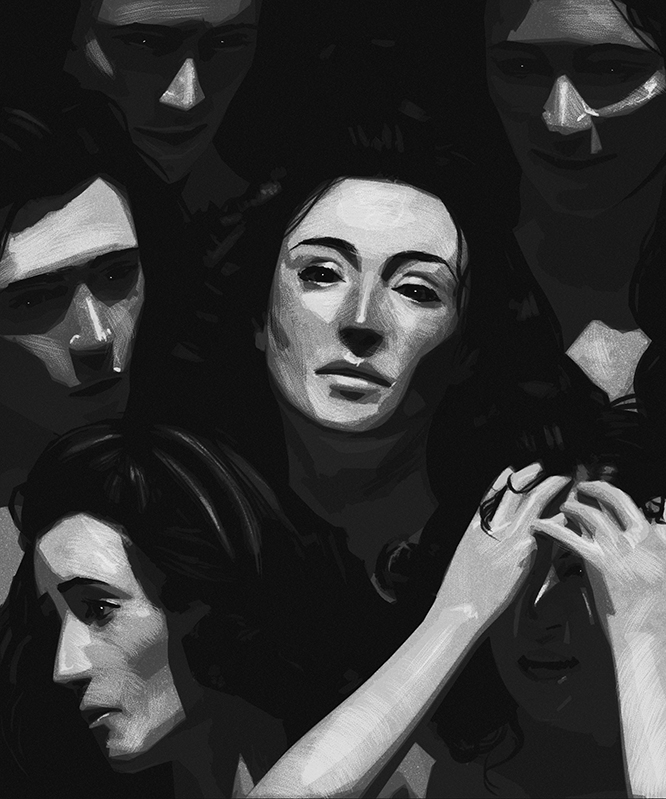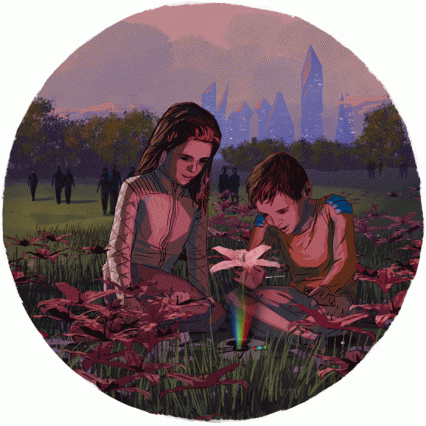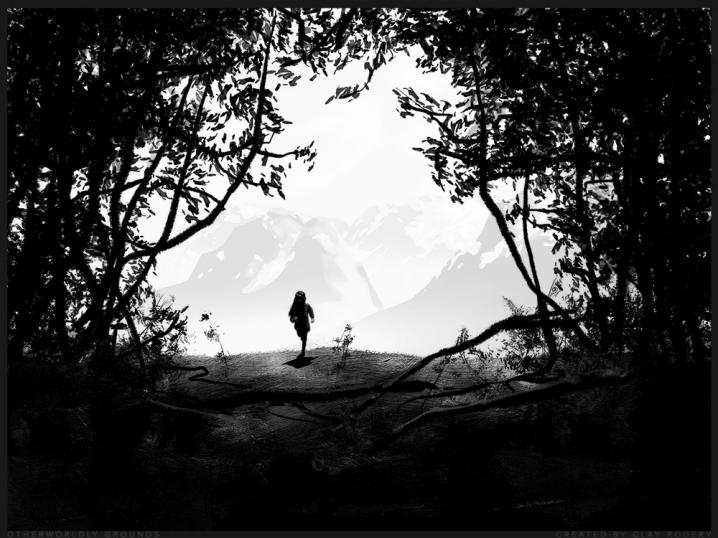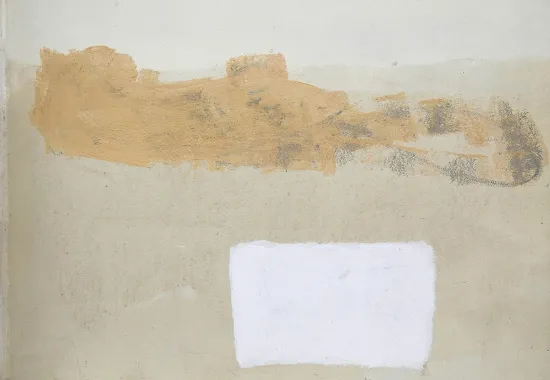Savior Complected: Honoring Other Voices, Using My Own

For a long time I subscribed to a savior ideal of writing: if I could develop enough skill and find myself a platform, maybe I could tell the stories of those unable to speak for themselves. While environmental and animal welfare were and remain situations that I’d like to learn how to speak up about, many of my concerns are more humanitarian, and I find these a lot more complicated to approach. In my teens, I told myself I would travel. I would observe and study, and maybe if I listened well enough, I would find something true and worthwhile to say about the state of humanity.
So, at twenty, I signed up for a semester abroad in Ghana. With no prior travel experience and with little consideration of the cultures I was foisting myself upon, I hurtled across the Atlantic on a wine-drunk British Airways flight, and stumbled ignorant into a socio-cultural situation I was not equipped for. Five months later I left Ghana with a nascent but sick-making idea of how badly colonialism had fucked over the Gold Coast—and maybe the entire African continent. I’d seen how distinct cultural identities had been forced together under a national moniker arbitrated by strangers from half a globe away. I’d seen how colonial Christianity had marginalized local religion to the point that many people refer to native faiths as fetish. And I’d seen how, in Cape Coast—even two-hundred years later—the stain of human excrement rose three feet up the walls of the holding cells where human beings were kept after being captured as slaves. I left with a sense of how depraved the legacy of white colonialism was, how utterly fucked up and entitled my own heritage was. Obviously, a few months of study was not enough to develop any kind of functional understanding of these issues—regardless, I left with my comfortable paradigms (rightly) shattered.
I knew after that semester that while I could write about my own shame and sorrow for the role of my heritage in the Diaspora, to tell the stories of any other culture would only be another form of white imperialism. With so many resonant, strong African and Black American voices speaking beautifully already about their own legacies, I have no place speaking on anyone’s behalf.
And for a long time after that, I thought that being silent was the best way to allow truer, less systematically and historically entitled voices to be heard. I still wanted, desperately, to find something helpful to write, to say, but had learned that crawling onto a soap box and speaking other people’s truths would only perpetuate the warped power structures that, at age twenty, I was only just starting to notice (and what an absurd luxury to make it twenty years before noticing these things...).
So for a while I focused on the soul, instead. After a two-year stint in software marketing, I moved to Taiwan to teach English, and to begin what could ironically (and probably accurately) be framed as an ideological plundering of a spiritual tradition that was not my own.
 Having drank heavily of the Eckhart Tolle pop-spiritualism Kool-Aid, I expected Buddhism to be a breezy, barefoot-on-campus sort of ordeal. I started studying with a group of dedicated expats, many of whom had been practicing Buddhism in Taiwan for upwards of ten years. They met several times a week in the basement of a teahouse in Taipei, and while they are without a doubt some of the most kind people I’ve ever met, it quickly became apparent that Buddhism—like Western religions—had its own in-group politics and spiritual one-upmanship. Regardless, I continued to practice and to benefit from my practice. I held out the hope that I’d find some linchpin ideal to share with my own troubled culture, but as time passed it became more and more apparent that I’d picked a particularly absurd avenue to explore my savior complex. Not only had I once again crafted an imperialistic, appropriative action-plan for saving humanity, but I’d also approached spirituality as a means to my own egotistical ends. The more I sat with myself, the more I realized that there were vastly more qualified voices already speaking about the application of Eastern thought in the West.
Having drank heavily of the Eckhart Tolle pop-spiritualism Kool-Aid, I expected Buddhism to be a breezy, barefoot-on-campus sort of ordeal. I started studying with a group of dedicated expats, many of whom had been practicing Buddhism in Taiwan for upwards of ten years. They met several times a week in the basement of a teahouse in Taipei, and while they are without a doubt some of the most kind people I’ve ever met, it quickly became apparent that Buddhism—like Western religions—had its own in-group politics and spiritual one-upmanship. Regardless, I continued to practice and to benefit from my practice. I held out the hope that I’d find some linchpin ideal to share with my own troubled culture, but as time passed it became more and more apparent that I’d picked a particularly absurd avenue to explore my savior complex. Not only had I once again crafted an imperialistic, appropriative action-plan for saving humanity, but I’d also approached spirituality as a means to my own egotistical ends. The more I sat with myself, the more I realized that there were vastly more qualified voices already speaking about the application of Eastern thought in the West.
So I returned to America with no idea what kind of world-saving words I might string together. I moved to New Orleans to start an MFA. I struggled to coherently write poems about my own experience addressing mental illness with meditation, hoping, still, to make some sort of helpful cultural contribution.
An undergraduate mentor of mine came to read at the University of New Orleans. I confided in him about my savior complex, and he advised me to write what’s fun for me to write, to let greater meanings and potential social impacts evolve naturally from the work—rather than trying to arbitrate a social impact from the outset. Following this advice, I wrote about spiders, octopi, sensory perception, sex. I observed that meaning did evolve naturally in these poems, and started to sense that it’d be ok to relax a little with the content of my work.
But then this year was, you know, the worst. Maybe it’s because I’m back in the US and more tuned into things, or maybe inequality, injustice and bigotry are genuinely coming to some sort of head. Either way, not a day goes by that I don’t read about some genuinely sick outcome of the white supremacist, heteronormative patriarchal oligarchy that has, in part, been my platform. And the more I read, the more outraged I become, the more I realize that simply listening to other voices is not enough anymore. It’s time to use my voice to shout the names of other writers who know better than I do. So whether it’s recommending the work of incredible poets like Claudia Rankine, Jericho Brown, Marilyn Chin, Ocean Vuong and Warsan Shire, pointing to the works of masters like Chogyam Trungpa Rinpoche, Chagdud Tulku Rinpoche, and dedicated American practitioners like Pema Chodron and Jack Kornfield, retweeting the shit out of @deray, @Nettaaaaaaaa, and @ShaunKing, or paying particular attention to systematically dis-empowered and habitually appropriated voices in my work as an editor and curriculum developer, I’m done passively stepping aside, and ready to offer up my voice as a conduit.
To me, one of the most powerful capacities of the written word is its ability to convey experiences that a reader doesn’t share. Literature has historically upheld a very specific viewpoint (read: white, straight, wealthy, cis-male), and not only has that severely stunted literature’s potential to enable mutual understanding, it’s also gotten kind of boring. I’m done trying to tell other people’s stories, but I’m also done being silent about them.
Jessica Morey-Collins is an MFA student at the University of New Orleans where she works as associate poetry editor of Bayou Magazine. She received a scholarship to study at the New York State Summer Writer's Institute. Her poems can be found or are forthcoming in Vinyl Poetry, The North American Review, ILK Magazine, Pleiades, The Boiler Journal, Black Tongue Review and elsewhere on the web and in print. Jessica is featured in the North American Review issue 299.1,Winter 2014.
Illustrations by Clay Rodery, an illustrator who lives and works in Brooklyn, New York. Clay’s illustrations have been featured in the North American Review, the most recent was in our bicentennial issue 300.3, Summer 2015.
Recommended
Mercy
Eclipsing
Psychic Numbing






